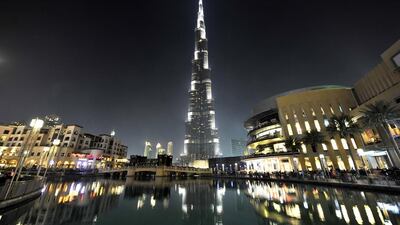ABU DHABI // Some types of energy-efficient lightbulbs can cause damage to the environment if thrown out and not recycled, experts say.
They say the public should be made aware of this before incandescent lights are phased out this summer.
Imports of traditional lightbulbs will be banned from July. By the end of the year, incandescent lights should no longer be available in shops.
Expected to cut about 940,000 tonnes of greenhouse gases a year, equal to taking 165,000 cars off the road, the move could have unintended, harmful effects on the environment.
Among the efficient technologies that will be allowed are halogen bulbs, Leds (light-emitting diodes) and compact fluorescent lights (CFLs). CFLs contain small amounts of toxic mercury.
While they are perfectly safe in daily use, problems can occur when they have expired, said Martin Valentine, a lighting expert at Abu Dhabi Municipality.
If the lights are disposed of in regular rubbish it can allow mercury, lead, cadmium and other substances to escape into the environment.
“CFLs are safe when they are intact but they are very fragile,” said Mr Valentine, from the UK. “They should be disposed of correctly. They should be recycled and never thrown in the bin.
“If you put them in landfills, the milligrams of mercury become grams of mercury and then kilograms of mercury.”
Mercury pollution could enter the water table, and in other countries even into supplies of drinking water, he said.
And with “millions and millions of fluorescent lights” in use, the problem is “a timebomb in western countries” where CFLs have been encouraged for longer than in the UAE.
Mr Valentine said he supported the ban on incandescent lighting, and the authorities had consulted major light makers before introducing it.
He said that as far as he was aware, waste management had also been a consideration.
In the UK, local authorities are responsible for setting up collection points for waste items that require special handling, such as CFL bulbs.
“The UK has the facilities but it is still up to the people to make that effort,” Mr Valentine said, explaining most still ended up in general landfills.
“We are lucky if we are getting 5 to 10 per cent of them recycled. If I remember correctly, the best results are from Sweden where 60 to 70 per cent of lamps are recycled.”
In the capital, the Centre of Waste Management is developing storage units and recycling centres for electronics and electrical equipment as part of Abu Dhabi’s waste master plan, said Faris Al Munaiei, project and facilities department director.
“We are examining this as part of the master plan and will be designing and building the storage units and recycling facilities based on the outcomes of the data management phase of the project,” Mr Al Munaiei said.
Ultimately, the problem will be solved through the change of technology as more people switch to Led lights, which are still a more expensive solution but prices are falling rapidly, said Mr Valentine.
Leds are also less likely to cause ecological issues if they end up in landfill, he said.
Paolo Cervini, vice president and general manager of Philips Lighting Middle East and Turkey, said some consumers had already made the switch, realising that the bigger upfront cost is paid back in energy savings and much longer product life.
“Leds are becoming more naturally a choice,” Mr Cervini said.
The technology is also increasingly preferred in large-scale government tenders, he said.
vtodorova@thenational.ae

